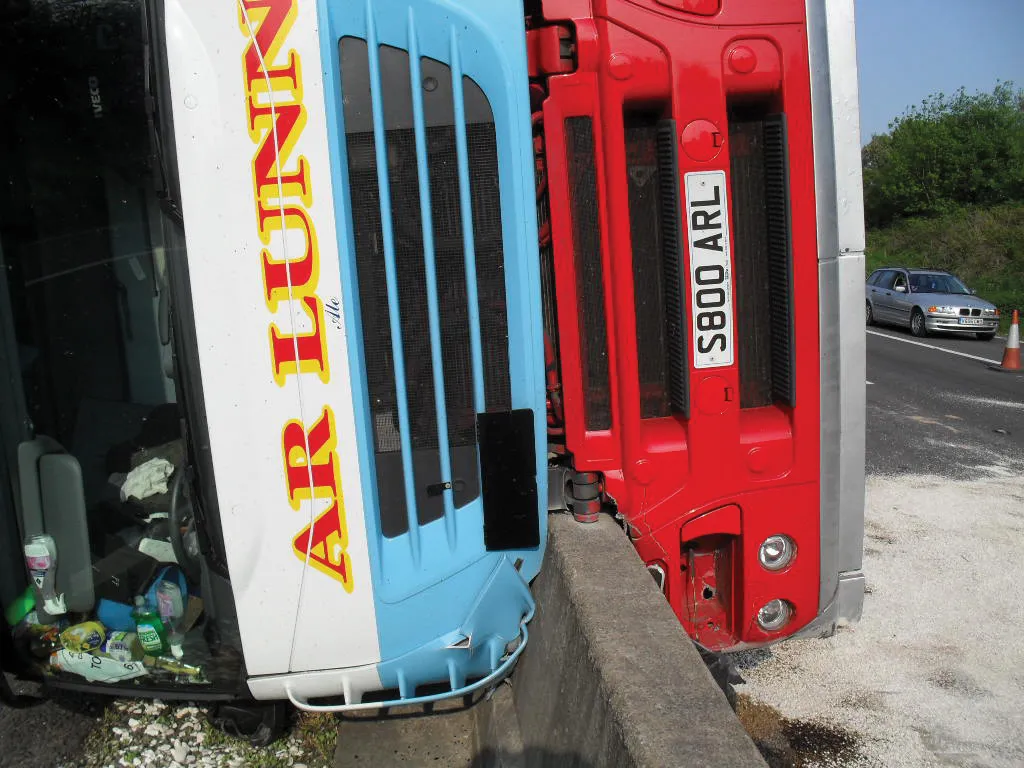The first pan-European 24-hour speeding enforcement crackdown resulted in police issuing more than 120,000 penalties.
TISPOL, the European Traffic Police Network based in London, UK, said the “marathon” took place earlier this month and so far 17 out of 22 participating countries have provided data.
A total of 4,352,234 vehicles were checked during the 24 hours. Of the 122,581 speeding offences, 116,479 were detected by police officers, with 6,102 detections using automatic devices.
Police in Germa
April 28, 2015
Read time: 2 mins
The first pan-European 24-hour speeding enforcement crackdown resulted in police issuing more than 120,000 penalties.
4753 TISPOL, the European Traffic Police Network based in London, UK, said the “marathon” took place earlier this month and so far 17 out of 22 participating countries have provided data.
A total of 4,352,234 vehicles were checked during the 24 hours. Of the 122,581 speeding offences, 116,479 were detected by police officers, with 6,102 detections using automatic devices.
Police in Germany issued the most of any national police force, handing out 91,262 summons.
In Germany’s North Rhine-Westphalia region, around 14,700 police officers were stationed at 8,700 locations.
The decision to carry out a nationwide crackdown was made in May at a conference of Germany's interior ministers. North Rhine-Westphalia, Germany's most populous state, has seen a larger-than-average fall in the number of people killed or injured on its roads since last year, when it implemented the speeding crackdown.
The region’s interior minister Ralf Jäger said that every third fatality on the roads is the victim of speeding. “That is what we are mobilising against," he said.
Other countries that provided data are: Cyprus (350 offences); Estonia (396); Finland (4,387); Hungary (4,928); Croatia (2,185); Ireland (857) Italy (5,561); Luxembourg (344); Lithuania (1,978); Latvia (807); Malta (7); Norway (918); Netherlands (2,366); Portugal (1,349); Slovakia (2,145); Slovenia (1,225) and Serbia (2,370).
Last year, 27,500 people died in road collisions throughout the1116 European Union. 3260 World Highways reported last month that road deaths fell by just 1% across all 28 Member States of the EU last year, according to data released by the 2465 European Commission. In its recently announced new three-year strategic plan, TISPOL reaffirmed its commitment to the European Union’s road death reduction target of 50% by 2020.
“The sole purpose of our actions is to save lives on Europe’s roads,” said TISPOL president Aidan Reid. “We want to get into the heads of drivers, not their purses. It is disappointing that so many drivers failed to heed the warnings. But it is vital that we take action against those who fail to comply with speed limits. Illegal and/or inappropriate speed is the single biggest factor fatal road collisions."
TISPOL’s conference this year takes place October 6 and 7 at the Radisson Blu Hotel, Manchester Airport in the United Kingdom. The conference focus will be on effective strategies for protecting vulnerable road users. %$Linker:2 External <?xml version="1.0" encoding="utf-16"?><dictionary /> 0 0 0 oLinkExternal Click here TISPOL register 2015 page false https://www.tispol.org/register2015 false false %> to register.
A total of 4,352,234 vehicles were checked during the 24 hours. Of the 122,581 speeding offences, 116,479 were detected by police officers, with 6,102 detections using automatic devices.
Police in Germany issued the most of any national police force, handing out 91,262 summons.
In Germany’s North Rhine-Westphalia region, around 14,700 police officers were stationed at 8,700 locations.
The decision to carry out a nationwide crackdown was made in May at a conference of Germany's interior ministers. North Rhine-Westphalia, Germany's most populous state, has seen a larger-than-average fall in the number of people killed or injured on its roads since last year, when it implemented the speeding crackdown.
The region’s interior minister Ralf Jäger said that every third fatality on the roads is the victim of speeding. “That is what we are mobilising against," he said.
Other countries that provided data are: Cyprus (350 offences); Estonia (396); Finland (4,387); Hungary (4,928); Croatia (2,185); Ireland (857) Italy (5,561); Luxembourg (344); Lithuania (1,978); Latvia (807); Malta (7); Norway (918); Netherlands (2,366); Portugal (1,349); Slovakia (2,145); Slovenia (1,225) and Serbia (2,370).
Last year, 27,500 people died in road collisions throughout the
“The sole purpose of our actions is to save lives on Europe’s roads,” said TISPOL president Aidan Reid. “We want to get into the heads of drivers, not their purses. It is disappointing that so many drivers failed to heed the warnings. But it is vital that we take action against those who fail to comply with speed limits. Illegal and/or inappropriate speed is the single biggest factor fatal road collisions."
TISPOL’s conference this year takes place October 6 and 7 at the Radisson Blu Hotel, Manchester Airport in the United Kingdom. The conference focus will be on effective strategies for protecting vulnerable road users. %$Linker:







